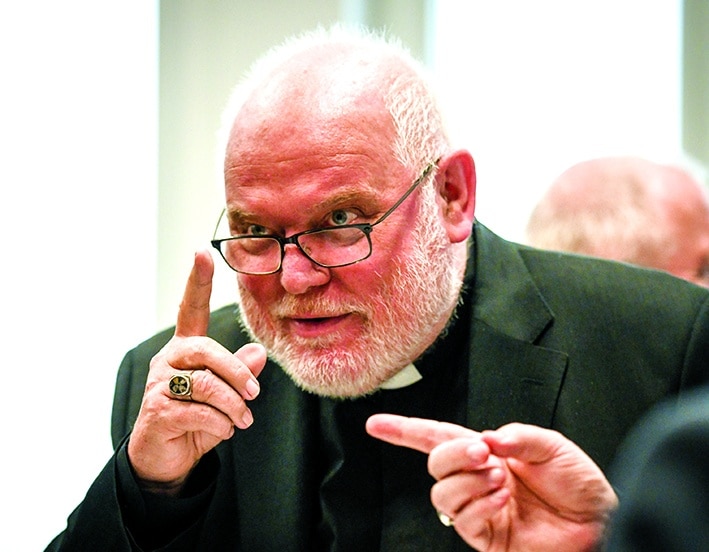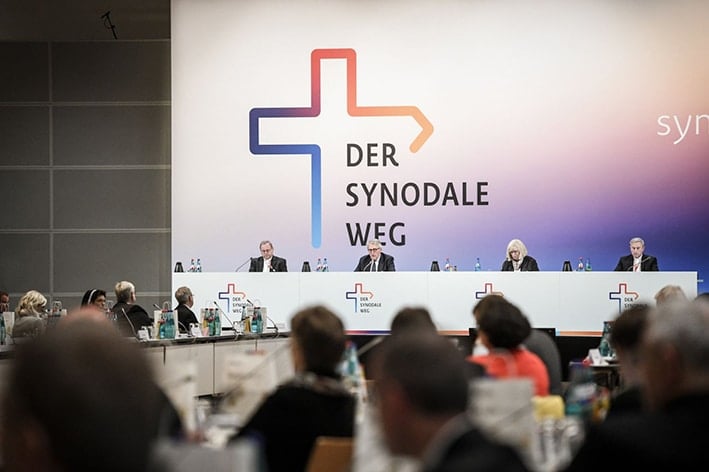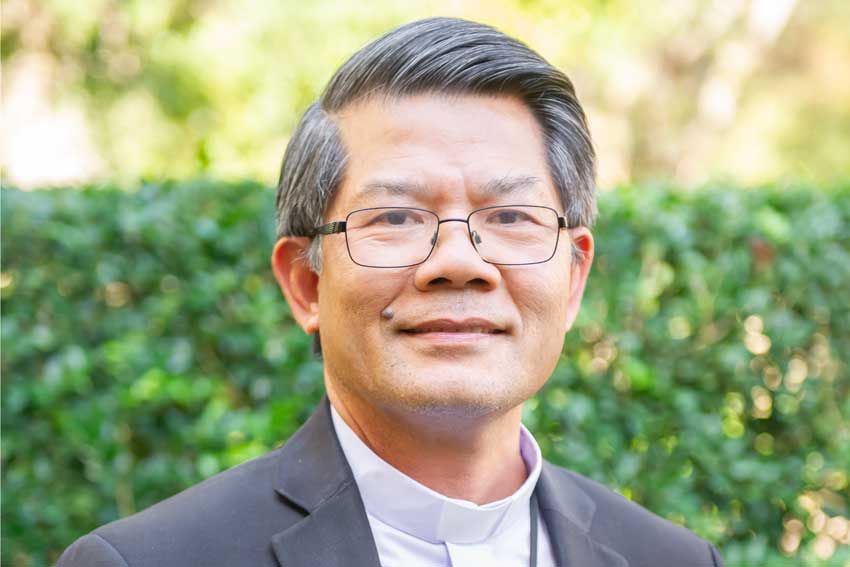
The German Synodal Way has overwhelmingly passed a raft of measures to change doctrine on, among other things, same-sex blessings, lay preaching and transgenderism, and has committed to a push for women’s diaconate and the re-examination of priestly celibacy.
It approved these measures at its concluding assembly, held in Frankfurt on 9-11 March.
“It does not end here. It is just the beginning,” said Irme Stetter-Karp, president of the Central Committee of German Catholics (ZdK).
As the eyes of the world’s Catholics were fixed on Germany, an unlikely Australian appeared to speak (in German) at one of the sessions: Bishop Shane Mackinlay, of Sandhurst in Victoria.
Bishop Mackinlay recommended the Australian Catholic Bishops Conference’s 2022 document on gender, Created and Loved, which reflects on the need for pastoral care for children in Catholic schools who are same-sex attracted.
He said children who are same-sex attracted in Catholic schools shouldn’t be drawn into heated political debates, but it’s important to respect their individuality and dignity.
Also invited to appear—although only as an observer, The Catholic Weekly understands—was Susan Sullivan.
Mrs Sullivan was until recently manager of the ministry leadership programme at the Australian Catholic University, and is married to Francis Sullivan, former CEO of the Truth, Justice and Healing Council and current chair of Catholic Social Services Australia.
Concerned Catholics Canberra Goulburn said in a media release that they, “look forward to learning from Susan about the German Synodal Way in the months leading up to the Synod of Bishops’ First Assembly in October.”
Closer to home, Bishop Mackinlay presided over the Sandhurst Diocesan Assembly in Kialla on 15 February.

Perhaps inspired by the German example, the assembly drew up priorities for Sandhurst’s new diocesan mission and pastoral council, which will be composed of Bishop Mackinlay, four clergy, and 11 laity.
“It will be the peak structure in the diocese in decision making and direction setting,” Bishop Mackinlay said.
The assembly’s keynote speaker was synodal theologian Dr Elissa Roper, a key figure in the drafting process for the Plenary Council who also served as a theological advisor at the recent Oceania regional meeting in Suva, Fiji.
Dr Roper said that synodality was, “a call to listen in ever-widening circles of interest.”
“We live with ideas, with pastoral plans, with curiosity, with pre-established solutions. But it’s necessary to live with the heart.
“Living with our hearts means we respond as Jesus did to suffering and injustice.
“When Jesus looked at the hungry crowds and was moved with pity, the Greek word [in the Gospel] is splagchnizomai, this means to be moved in one’s bowels or inner parts—that is, compassion that moves the very depths of your being.
“The church on the margins, on the peripheries of a comfortable and functional life, is where we see the value of compassionate guts.
“These include the bold voices of social action and justice for refugees and asylum seekers, and the quiet work of catholic teachers who enable LGBTIQ students to belong and flourish.”
Bishop Vincent Long OFM Conv has also announced that his diocese will hold its own diocesan synod to promote root and branch reform of the church in Parramatta.

The synod will be held in two phases, in October this year and in mid-2024.
In a letter convoking the Synod, issued on 5 March, Bishop Long said the synod would develop a pastoral plan and “path of renewal.”
“The Diocesan Synod will have a significant impact on the way in which we live out community and mission,” Bishop Long wrote.
Bishop Long has been an active and enthusiastic promoter of synodality, with the Parramatta diocese hosting lectures from key figures in the church reform movement, including Tablet correspondent Christopher Lamb, Benedictine nun and speaker Sr Joan Chittister OSB, and Sr Nathalie Becquart XMCJ, the first female undersecretary of the bishops synod on synodality.
In a talk given on 25 January to Catholic schools leaders in Parramatta, Bishop Long said that after the COVID-19 pandemic, we need a “radical shift from the ‘business as usual’ approach” and not to restart old practices, agendas and priorities.
“I am proud to say that the Diocese of Parramatta is solidly on its way to becoming a synodal Church that Pope Francis is calling us to,” he said.
“Two years ago, we undertook the most comprehensive, professional and timely governance review ever taken among the dioceses in Australia.
“It provided the impetus and a launching pad for a root and branch reform of how the Church in Parramatta should conduct its mission.
“I am particularly pleased that the reviewers recognise that a culture of synodality already exists in the diocese, which they call the ‘Parramatta Way’.”
